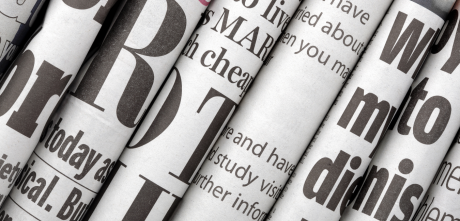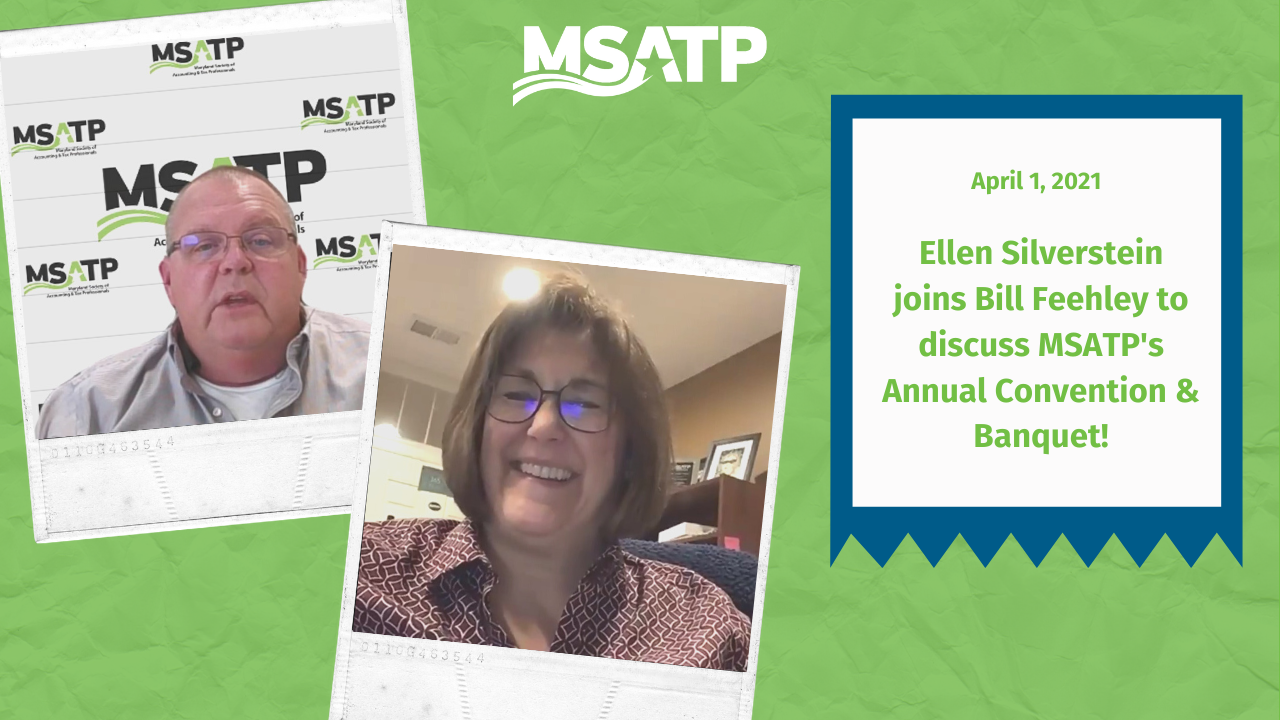

On this week’s episode of MSATP TV, Executive Director Bill Feehley and Ellen Silverstein discussed MSATP’s Annual Convention & Banquet! Remember to follow us on Facebook to catch all our MSATP TV episodes live!
If you are interested in learning more about the Annual Convention & Banquet, please click here.
Watch on YouTube.
Important Notice Regarding Your License Registration or Permit Renewal Dates – Occupational and Professional Licensing | Maryland Department of Labor
On March 9, 2021, Governor Larry Hogan issued Executive Order No. 21-03-09-03 addressing the renewal dates of expiring licenses, registrations and permits. The new order amends and restates the earlier executive order of March 12, 2020 concerning expiration dates.
From March 12, 2020 until March 9, 2021, the Maryland Department of Labor’s Division of Occupational and Professional Licensing has allowed licensees to operate under an extended status without requiring them to renew their respective licenses, registrations or permits during the governor’s mandated grace period. However, per the new order, we will now begin a phase-in period to restore expiration dates to normal intervals.
For more information, click here.
Announcement 2021-7 | A-2021-07
Announcement 2021-7 notifies taxpayers that amounts paid for personal protective equipment for the primary purpose of preventing the spread of the Coronavirus Disease 2019 are amounts paid for medical care under § 213(d) of the Internal Revenue Code. As a result, the announcement confirms that these amounts are qualified medical expenses eligible to be paid or reimbursed without being included in gross income under health flexible spending arrangements (health FSAs), Archer medical savings accounts (Archer MSAs), health reimbursement arrangements (HRAs), or health savings accounts (HSAs). In addition, the announcement notifies administrators of group health plans regarding the ability to make certain plan amendments pursuant to the announcement.
Announcement 2021-7 will appear in IRB 2021-15, dated April 12, 2021.
For more information, click here.
Paycheck Protection Program Extended
On March 30th, President Biden signed into law the two-month extension to apply for a Paycheck Protection Program (PPP) loan. As a refresher, the legislation extends PPP through May 31 and allows 501(c)(6) organizations and others more time to pursue a second PPP loan. Further, if eligible organizations apply by May 31, the Small Business Administration will permit lenders an additional 30 days to process and approve any outstanding applications.
Eligibility criteria for a second PPP loan are as follows:
- The applicant received a first PPP loan and will or has used the loan only for authorized uses;
- The applicant employs no more than 300 people; and
- The applicant can demonstrate at least a 25-percent reduction in gross receipts between comparable quarters in 2019 and 2020.
For more information, please click here.
Governor Hogan Announces Replenishment of Maryland’s Unemployment Insurance Trust Fund | Maryland Chamber of Commerce
On March 31st, Governor Larry Hogan was joined by legislative leaders to announce a historic, bipartisan agreement over how the state will spend the $6.355 billion in funding allocated to Maryland in the federal American Rescue Plan Act. The American Rescue Plan Act passed in early March with the promise of supporting struggling families and communities with direct relief. Included in the $1.9 trillion package is $360 billion earmarked for states, counties, cities and tribal governments to cover increased costs, replenish lost revenue and mitigate the economic fallout from the COVID-19 pandemic.
“I’m pleased to announce today that we have once again reached an historic bipartisan agreement on a fiscally responsible budget accord, which effectively targets relief to Marylanders most in need,” said Governor Hogan during the announcement.
Importantly, Governor Hogan’s announcement included the following:
- $1.1 billion will be spent to replenish Maryland’s Unemployment Insurance Trust Fund in order to maintain its solvency and stabilize rates over the next two calendar years;
- $800 million will be added to existing Maryland Emergency Economic Relief Programs;
- $600 million for the safe reopening of schools;
- $300 million for a broadband technology initiative to expand access to high-speed internet;
- $100 million for employment training and apprenticeship programs;
- $100 million to support state employees providing essential services during the pandemic;
- $500 million in infrastructure and transit improvements;
- $300 million to provide a critical lifeline for struggling Marylanders including low income with utility programs, temporary disability payments, etc.
For more information, click here.
Carroll County Accepts Maryland Relief Act of 2021 and Maryland Recovery Now Grant Funding
The Carroll County Board of Commissioners voted to accept Maryland Relief Act of 2021 funding for Carroll County, involving four (4) new business grants from the State of Maryland including the Maryland Recovery: Nonprofits Carroll County grant. The State of Maryland Relief Act of 2021, passed in February 2021, includes more than $1 billion in tax relief and economic stimulus for struggling families and small businesses suffering because of the COVID-19 pandemic.
Application information including criteria, dollar amounts, and start/close dates vary for each grant with more information posted as it becomes available. All information will be available on the Department of Economic Development’s website. Interested businesses or persons should check the site regularly for updated information and apply online from this site.
For more information, please click here.
University Students and Staff Should be Aware of IRS Impersonation Email Scam | Tax Tip 2021-42
People should be aware of an ongoing IRS-impersonation scam that appears to target educational institutions, including students and staff who have .edu email addresses. The suspect emails display the IRS logo and use various subject lines, such as Tax Refund Payment or Recalculation of your tax refund payment. It asks people to click a link and submit a form to claim their refund.
The scam website requests taxpayers provide their:
- Social Security number
- First name
- Last name
- Date of birth
- Prior year annual gross income
- Driver’s license number
- Current address
- City
- State/U.S. territory
- ZIP code/postal code
- Electronic filing PIN
For more information, please click here.
